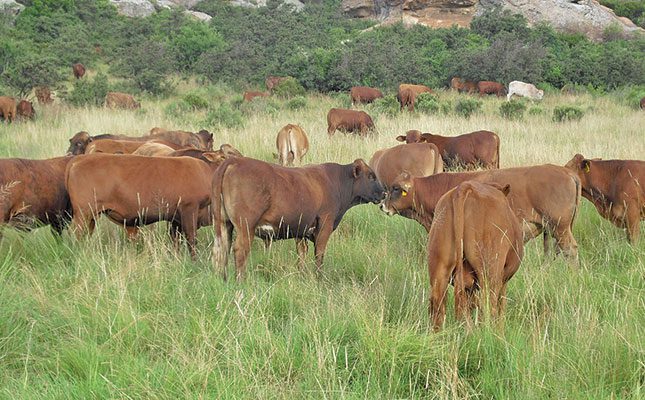
Photo: FW Archive
The Department of Agriculture (DOA) told Farmer’s Weekly that cattle at a dip tank in Mtubatuba tested positive for the disease after displaying clinical symptoms in December.
“The virus detected was identified as the SAT1 strain, a variant that has previously been found in the northern parts of the Kruger National Park,” said the DOA.
According to a statement, Agriculture Minister John Steenhuisen emphasised the importance of strict adherence to biosecurity protocols to curb the spread of the disease.
“It is critical that all livestock owners comply with the biosecurity measures we have in place. [DOA] urges farmers to report any suspected cases immediately to veterinary authorities,” Steenhuisen said.
Strict quarantine and biosecurity enforcement
He added that quarantine protocols and biosecurity measures were necessary to mitigate the spread of the virus and to protect the national livestock sector.
The DOA was also taking a proactive approach through its ongoing epidemiological investigations at the dip tank in Mtubatuba, as well as at the premises where new outbreaks were confirmed in Vryheid and Newcastle.
“We conduct a thorough investigation, including tracking all animal movements in the month prior to detecting clinical signs of infection,” said the DOA.
The DOA added that state veterinarians were visiting the premises where new cases had been reported to interview farmers and collect samples for analyses. In addition to these efforts, the DOA has enforced strict quarantine measures in affected areas, restricting the movement of animals in and out of these areas.
Long-term control measures and disease management
“The department continues to promote biosecurity as a critical defence against FMD and other contagious diseases,” the DOA said.
According to Section 11 of the Animal Diseases Act, farmers were legally required to take preventive measures to control the spread of FMD. These measures included controlling farm access, disinfecting equipment, and monitoring animal health.
To bolster these efforts, the DOA was conducting ongoing education programmes and media campaigns to raise awareness amongst livestock owners of FMD, especially in high-risk areas.
“It is in the best interest of every farmer to safeguard their herds,” said the DOA.
In response to the spread of the disease, the department has issued nationwide control measures, including mandatory health declarations for any livestock being moved, and a 28-day quarantine for cattle, sheep, and goats being introduced to new herds or flocks.
“We’ve implemented these measures since October 2022, and they must be strictly adhered to,” DOA said.









